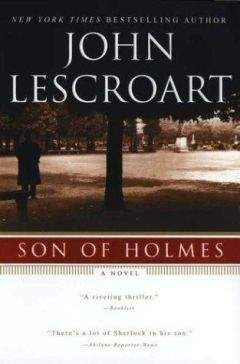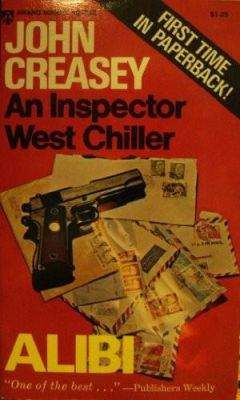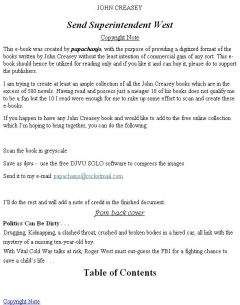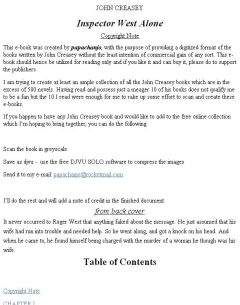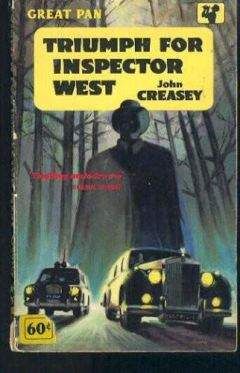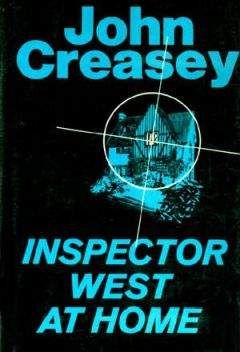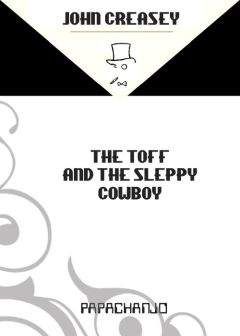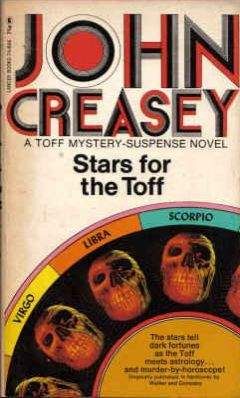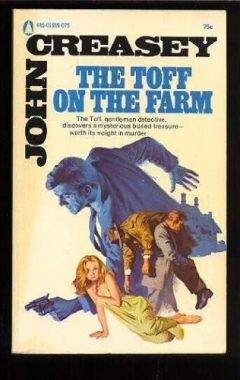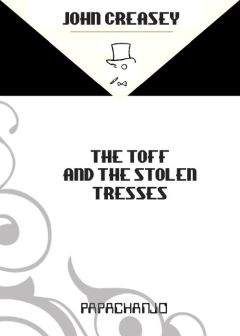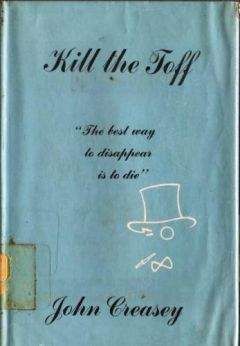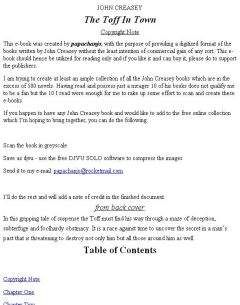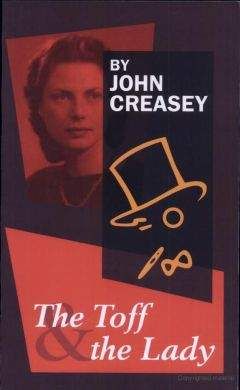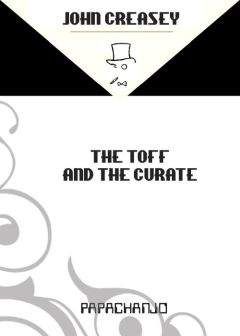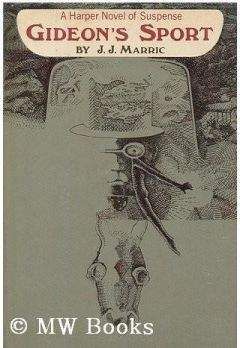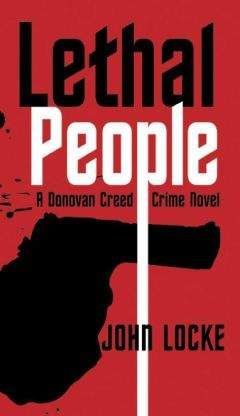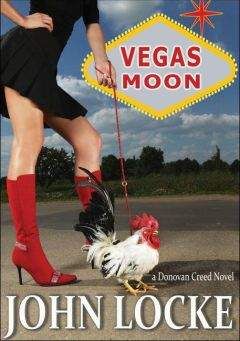John Creasey - Meet The Baron
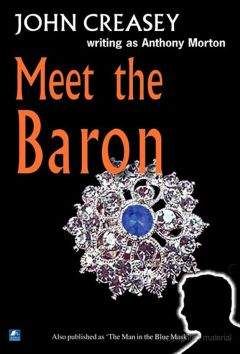
Скачивание начинается... Если скачивание не началось автоматически, пожалуйста нажмите на эту ссылку.
Жалоба
Напишите нам, и мы в срочном порядке примем меры.
Описание книги "Meet The Baron"
Описание и краткое содержание "Meet The Baron" читать бесплатно онлайн.
“Don’t be familiar,” snapped Bill Bristow; “and if you haven’t been working and you didn’t take his money, how is it you’re so flush lately?”
“Yer can’t prove nothin’,” snarled Red.
That tells me a lot,” said Bristow thoughtfully.
He grew a little closer to Baron when Flick Leverson was caught trying to smuggle a little packet of precious stones out of the country. All the gems were stolen property, and Bristow knew that Flick was a fence of high degree. He was elated when he discovered that the bigger stones from the Kia bracelet and the Kenton brooch were in Flick’s packet.
“It’ll go easier for you,” Bristow told the fence, “if you’ll give me a description of the man you bought those two things from — and tell me everything you know about him.”
“Then it won’t go easier for me,” said Flick philosophically. “He wore a mask, Bill, a tweed cap, a mackintosh, and rubber-soled shoes. I’ve never seen him before nor since. I don’t know where he came from.”
“What kind of mask?” asked Bristow.
“A handkerchief over his mouth and nose.”
“Colour?”
“Blue or black. It was after dark when I saw him.”
“How did he know about you ?”
“No idea,” said Leverson, and Bristow knew that the fence would not talk a great deal.
“Voice ?” he snapped.
“Up in the air,” said Flick. “Squeaky and . . .”
“Oh, damn it!” muttered Old Bill, to the fence’s surprise, for Bristow was usually a good-tempered officer.
Whether it was the same man with a different voice, or whether Baron had passed the two pieces of jewellery to someone else for disposal. Old Bill didn’t know. He did know, however, that he was beginning to worry about Baron.
Small jewel-robberies were reported to the Yard frequently from various counties, and London’s Society suffered considerably from the same trouble. If there was anything remarkable about the thefts, Bristow told himself, it was that they all took place during a dance, dinner-party, or celebration of some kind or other. When he went over them more carefully with Superintendent Lynch he discovered two other things of interest.
The robberies seemed to follow the Fauntley family round England. Lord and Lady Fauntley, Lorna, John Mannering, the Dowager Countess of Kenton, and half a dozen other members of the same set were always present. And every time the theft was of a trinket of comparatively small value. No effort was made to take more valuable stones, such as Lady Fauntley’s Liska diamond.
“Get all the dope you can,” said Lynch, “on the servants of that crowd. It’s beginning to look like an inside job, Bill.”
“But there’s always definite proof that the man came from the outside,” said Bristow.
“Too definite,” said Lynch. Then, cautiously: “At least, it might be.”
Bristow put half a dozen men on to the task of following the history of the various servants, but little came of the investigation. There wasn’t a bad record — nor even a suspicious one — in the whole bunch.
“Ah, well,” said Lynch phlegmatically, “he’ll either give the game up before we get him or he’ll go too far.”
“That’s a useful contribution to the problem,” said Bill Bristow. “Wait until he starts on something big.”
“Funny thing,” said Lynch, “but that’s just what I am doing.”
Mannering was enjoying himself.
He had nothing against Detective-Inspector William Bristow; in fact, the rumours that he had heard from such sources as Red Flannagan, Flick Leverson, Levy Schmidt, and others, favoured the policeman. But some urge, some devilry which possessed him, had tempted him to try the pawnshop trick, in which Levy had been glad to help, for he had seen a way of buying good stuff at low prices, and at the same time proving his good-will towards the police. Levy, Mannering had discovered, was a fence of the highest class, and it was through the Jew that he had his introduction to other members of the profession. He needed the introductions. Not the least difficult part of his new life was the disposal of the gems, while he had realised after the Fauntley strong-room affair that he must have more than a rough knowledge of safes and locks. He prided himself on learning quickly, but the success of the pawnshop affair pleased him as much as that of the small robberies he had contrived at the expense of certain members of society.
Gambling had been in Mannering’s blood almost from the moment he had opened his eyes. The years of comparative peace in Somerset seemed now like a fantastic dream. The game was the thing.
Prior to the birth of the new idea he knew that there had been something lacking in the game. Staking a certain amount of money on a horse or the turn of a wheel had its attractions, but failed to quicken his blood; his own share was passive beyond the signing of cheques. But in this new game there were thrills and to spare. His freedom depended on his own quickness; his livelihood depended on his own thoroughness. It was his wits against the police.
Mannering had weighed everything up before he had started; the handicaps were heavy, but the rewards high. There was money and to spare, if he had the courage and the brains to keep away from the police; but he knew that the odds against beating the law were very much against him. Unless . . .
Unless he could get the police fighting against a shadow; unless he could create two or three different personalities, confront the police with two or three problems, all separate on the surface, but all connected through the man known as the Baron. Could he? Was it possible to set the police — Bristow and Lynch in particular — hunting shadows while he worked ?
It was possible, Mannering told himself.
At that time he judged pretty well how much the police knew. He guessed that suspicions had been aroused by the similarity between the house-party crimes, and he knew that the authorities connected the mysterious T. Baron with the Kia and the Kenton baubles. He even suspected that, wherever the Fauntley set moved, so would a member of the Force; the time was here when it would not be safe to use the same method — the brief dousing of the lights, the robbery, and the switching back of the lights, with the resulting confusion. It was necessary, he told himself, to change his methods, if only temporarily. If he persisted with them he realised that the police would start investigating the house-party crimes very carefully, and sooner or later they would discover the truth.
There was one thing that worried Mannering. Not for a moment was he troubled about using Fauntley as a dupe; most of the man’s money had been made during the War years, and Mannering held a very real objection to profiteers of his type. Certainly he would have no scruple at having another attempt at Fauntley himself.
But there was Lorna.
Mannering himself hardly knew what he thought of the girl. On the first few occasions on which he had met her she had intrigued him far more than any musical-comedy actress had ever done. But he was bitter. He thought rarely of Marie Overndon, but the cynicism that had followed the episode at the Manor remained. He told himself that she had spoiled him for serious attachments in the future, come who may.
Lorna was . . . different.
The Fauntley household, he told himself, would remain as his background. Nothing had been put into words, but it was generally accepted that between Lorna and himself there was an understanding, and the belief satisfied Fauntley. Lorna was enigmatical, erratic, and, her father believed, possessed of some foolish introspection which prevented her from giving Mannering a straight answer, but as Mannering had no complaint Lord Fauntley let things slide. His own concern was the making of money and more money, the collecting of precious stones and yet more stones.
The illusion of wealth that Mannering had so carefully created was a powerful one. No one, not even Randall or Plender, suspected that the fantastic turf wins he had made were imaginary, while the affair of the Klobber diamond shares had convinced Plender that Mannering was using his brains to make money, instead of relying on the turn of a wheel or the form of a horse. Mannering laughed to himself when he remembered the Klobber sensation. Actually he had profited from those supposedly defunct diamond-mines to the tune of a few hundred pounds, but when he had passed on the hint — obtained through a careless word from Fauntley — to Plender, it had done him more good than a substantial monetary profit. It had fostered the illusion of his wealth to such an extent that he almost believed in it himself.
He faced the prospect of the future with a coolness that sometimes made him laugh aloud. The rules were simple. He would take what he could, where he could, from anyone who would not suffer a great deal from the loss. The Dowager Countess of Kenton, who had outlived two husbands, was fabulously wealthy. The owner of the Kia bracelet could have bought gems ten times its value without batting an eye. Others who had contributed to his banking-account were very wealthy themselves. No one suffered, except in pride of possessions, Mannering told himself time and time again, although with Bristow it was his personal pride.
In the first months of his career Mannering had made one or two mistakes that might easily have cost him his freedom, but his carefulness in the matter of his dress and voice had saved him. For one thing, when he had hired Charlie Dray to teach him the elements of safe-breaking, he had not allowed for the possibility of Charlie being an expert pickpocket. Some stones of the Kia bracelet had been neatly pinched. So had Charlie, but fortunately the latter’s knowledge of his pupil’s appearance had been slight.
Against Charlie Dray Mannering bore a grudge. One day, he promised himself, Charlie would suffer a severe pain in the neck. To Levy Schmidt, on the other hand, Mannering was grateful.
It was inevitable that, in his guise as Mr T. Baron, Mannering should meet and talk with many strange people, most of whom were members of the profession in some way or other. To some he could talk in complete confidence; others created the impression that if they could get any information on which to turn King’s evidence they would do so without the slightest qualms. Mannering was forced to go warily with those he talked to and dealt with, but as lie never gave an address and rarely saw the men more than once or twice — with certain necessary exceptions in whom he believed he could place implicit trust — he did not worry.
It was late in July when he first heard the rumour of the Rosa pearls.
Some three years before the Rosa pearls had been stolen from their rightful owner in America, and since then there had been not the slightest clue to their whereabouts; Randenberg, the victim of the theft, had been amply covered by insurance, but he mourned the Rosa pearls as the prize piece in a collection that rivalled that of Fauntley in England. Mannering had known of this many months before he had thought of turning to cracksmanship for a livelihood, for the Randenbergs had spent two seasons in England, and he had met them several times.
It was a mere whisper of the pearls that came his way when he was trying to dispose of a small ring that he had stolen from an Essex household during a visit. So far as he knew the ring had not been missed. The fence with whom he dealt with very small stuff grinned when he saw the ring; it was higher quality than he usually handled.
“Reckon,” he said, paying out promptly, “you’ll be after the Rosas one of these days, son.”
“What’s them ?” Mannering demanded harshly.
“ ‘E don’t even know ‘em!” The fence leered, and then for a moment his face grew crafty. “But I reckon Sep Lee knows a lot, if you arsk me. ‘Im an’ ‘is “pusiness”! Pah!”
Mannering, wearing a slouch cap and his inevitable mackintosh, affected to take no notice, but the germ of an idea was in his mind. The Rosa pearls would be worth an immense sum, even as illegal gems; the man he knew vaguely as Sep Lee might prove interesting. He made certain inquiries, and the more he learned the more he realised the possibility that the fence might be right.
One morning towards the end of that sweltering August Mannering went into the offices of the Severell Trust, a financial syndicate with fingers in most pies, and asked for Mr Septimus Lee. Mannering was recognised by the clerks who received him, and was treated with the respect demanded by a man of his reputed wealth and standing. It was not unusual for wealthy men to visit Septimus Lee, although no one apart from Lee himself and one other knew the purpose of those visits.
Lee was a Jew, a thin, scraggy little man, with a beak of a nose and dark, lank hair. His shrewd eyes peered up at Mannering as the latter sat down, adjusted his trousers fastidiously, and said: “You know me, Mr Lee?”
“Put, of course. Who vould not ?” Lee’s smile was unctuous.
Mannering smiled to himself at the compliment, but outwardly ignored it.
“Have you any idea why I called on you ?” he asked quietly.
“Vell . . .” Lee shrugged his shoulders and lifted his hands high. “How should I know, Mr Mannering? So many famous people come to see me, for so many reasons.”
Mannering smiled; lights were sparkling in his eyes.
“Mostly to borrow, don’t they?”
“Vell” — a smile flitted across the Jew’s face and the old eyes gleamed — “sometimes I can oplige vith a little temporary help, yeth? You are in need, Mr Mannering, of such . . .”
Mannering shook his head decisively, and there was a subtle change in the expression in Lee’s eyes.
“No. I haven’t come to borrow, Mr Lee. I’ve come about some — rumours, shall we say?”
Mannering spoke casually, but there was a barb in the words. Lee knew it, and his eyes narrowed. His lined face was expressionless.
“Strange things rumours, yes?”
“So strange that usually it doesn’t pay to believe them,” said Mannering. “But this one was very intriguing. It concerned the Rosa pearls, Mr Lee.”
There was no mistaking Lee’s interest now, and there was a hint of alarm in his eyes. It went quickly, and he shrugged his shoulders. “So . . .”
“Now, the Rosa pearls,” went on Mannering casually, “were stolen from the Randenbergs, in New York, three years ago. I’ve heard a rumour — you won’t be interested in where it came from, Mr Lee — that they are now in London.”
“Ye-esss,” murmured Lee.
“Very beautiful things,” murmured Mannering. “The rose-tinted queen pearls in the centre and the famous Rosa graduation. Quite the most famous pearls in America, weren’t they?”
“Ye-esss,” murmured Lee again.
“And there is a certain collector,” said Mannering, with a widening smile, “who would be willing to pay good money for them; within reason, of course. Working on the hypothesis that the Rosa pearls were in the market, how much would you think they were worth, Mr Lee ?”
The Jew was rubbing his thumb across the bridge of his nose, and the expression in his eyes was remarkably cunning.
“Veil,” he said smoothly, “vorking on that strange hypothesis, my tear Mr Mannering, I might say — twenty thousand pounds.”
Подписывайтесь на наши страницы в социальных сетях.
Будьте в курсе последних книжных новинок, комментируйте, обсуждайте. Мы ждём Вас!
Похожие книги на "Meet The Baron"
Книги похожие на "Meet The Baron" читать онлайн или скачать бесплатно полные версии.
Мы рекомендуем Вам зарегистрироваться либо войти на сайт под своим именем.
Отзывы о "John Creasey - Meet The Baron"
Отзывы читателей о книге "Meet The Baron", комментарии и мнения людей о произведении.






